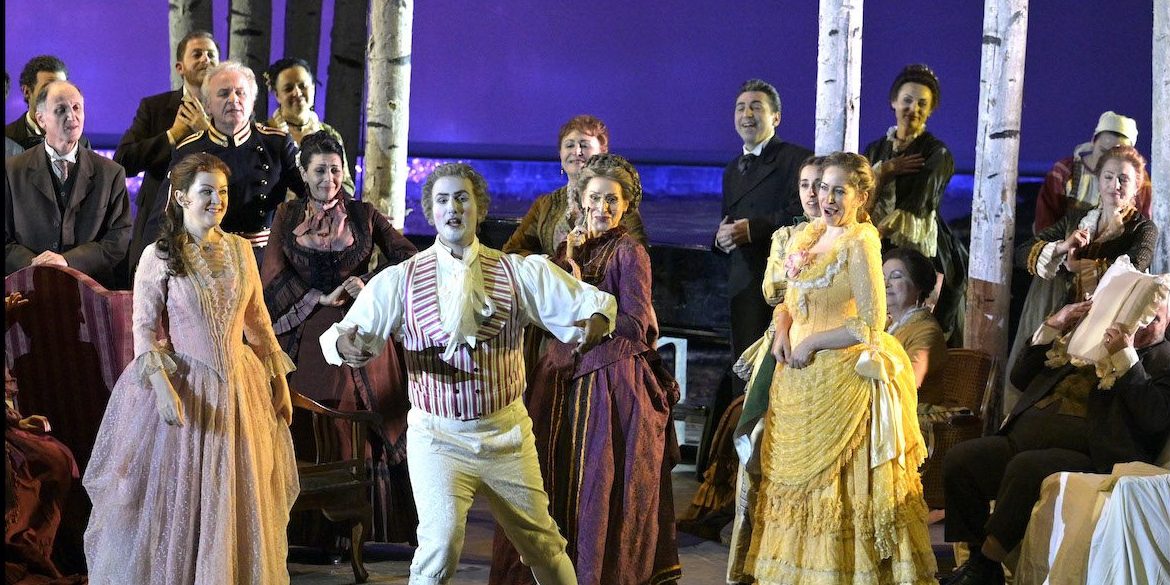Yevgeni Onegin is a truly great opera, titled after a male character that inflicts tragedy.
The production directed by Jean-Claude Auvray in 2003 was scheduled to return to the Tel Aviv Opera in 2019, but then Covid hit and everything was shut down. A couple of years later it has finally made it to the stage and it is well worth the wait – it’s well-acted, played, and sung too.
The curtain opens to a grove of birch trees with a carpet of white flowers covering the stage. This lovely sight stands for the garden at Tatyana’s house where she first meets the standoffish visitor from the big city.
The thin white trunks will stay a part of the scenery throughout the opera, as the action moves to different locations. In the second scene, which takes place in Tatyana’s bedroom, the trees in the background serve as a poetic symbol of her anguished mind as she writes Onegin a love letter while the moon slowly moves through the night sky. The young woman is completely enwrapped in her own torment, not listening to her nanny Filippyevna as she tries to tell her of her miserable life, being married off at 13 to a stranger. It is a touching moment that serves to characterize the egocentricity of young romanticism.
The same grove is the sight of the fatal duel, only this time the ground is covered with snow. In the third act, as the story moves to Saint Petersburg a few years later, the trees can still be perceived behind the transparent walls of the prince’s mansion, as a reminder of where Tatyana came from and where she would have been happy to stay had only Onegin opened his heart before closing hers.
Tatyana is the real protagonist of this opera and on the evening I attended the theater, she was beautifully portrayed and sung by the Russian born Israeli soprano Alla Vasilevitsky, who grew in front of our eyes from a shy bookish country girl who experiences the heartbreak of first love to a refined lady who has learned to live with disappointment. Israeli Shay Bloch was also lovely as the younger cheerful sister Olga. Larissa Tetuev, who once sang Olga, left a mark as the girls’ mother.
The men were not as strong. New Zealander Thomas Atkins has a sensitive beautiful tenor voice, however, occasionally it was overpowered by the orchestra. Dan Ettinger conducts outstanding orchestral and chorus performances. The Romanian Ionut Pascu’s Onegin performance excelled in performing the callous side of the character but didn’t achieve the tragedy, and when he begged Tatyana to give him a second chance he failed to convince.
Tchaikovsky’s lyrical opera is filled with gorgeous melodies, some inspired by Russian folk songs, but the biggest hit is probably Prince Gremin’s aria in the third act about love at any age. Happily, this mature and melancholy aria was beautifully serviced by the Russian Andrey Valentiy in his debut performance at the Tel Aviv Opera.

